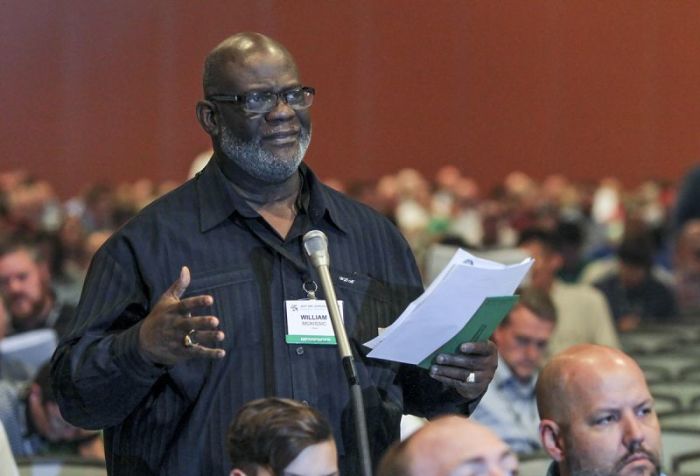Black So. Baptist Pastor Who Sponsored Resolution Condemning Alt-Right Explains Why He Is Staying

The black pastor who introduced the resolution condemning the alt-right at the SBC's annual meeting is explaining why, despite the denomination's failure to pass it initially, he is remaining a Southern Baptist.
In a Wednesday editorial in The Washington Post, Dwight McKissic, who for 33 years has been the senior pastor of Cornerstone Baptist Church in Arlington, Texas, responded to a New York Times piece by Lawrence Ware, a black academic and minister who announced he was departing the Southern Baptist Convention — the nation's largest evangelical Protestant group.
Ware said he was leaving for several reasons, including the group's stance on LGBTQ issues, the massive support for President Donald Trump and his policies within the denomination, and the hiccup that occurred in passing the resolution authored by McKissic condemning the alt-right and white nationalism at the SBC annual meeting in June. The resolution ended up passing with near unanimity after it underwent an edit and Russell Moore, president of the denomination's policy arm, spoke out in support of it from the convention floor.
"Whether the committee's members consider it a factor in their decision, the panel is largely made up of people who are white, people with historical power and privilege," McKissic wrote of the resolution committee's initial rejection of his resolution prior to its revision.
"Of course, you have what you are born with, but people with power and privilege need the voice of racial minorities to understand our different experiences. Because the committee contained only one nonwhite member of 10 members, the panel failed to prioritize the need to subvert white supremacy in all its expressions."
But while there are "plenty of things in the SBC that make [him] uncomfortable," McKissic wrote that he opted to stay for three reasons: his long personal history with the group, the financial generosity and support he has received from SBC national leaders, and his desire to see Jesus' prayer answered that the church would be united. For the church to have such oneness, the SBC needs to be even more racially integrated and diverse than it is now, he said.
"When the SBC is persuaded to address the needs of African American communities — such as building up the black family, assisting ex-convicts with employment, removing payday loan offices from our neighborhoods, addressing disparities and inequities in the criminal justice system and addressing police brutality — it will have a huge positive impact on black SBC churches," McKissic continued.
He added that a common perception that exists among African-American pastors and churches "is that in order to be welcomed, we have to park our brains, culture, history, politics, worship practices, critical thinking skills and autonomy at the door."
The denomination needs to work to ensure that this is not true, so they can recruit more congregations to cooperate with the SBC, he noted.
As CP reported in March, McKissic previously wrote that it was going to be "difficult for me to be able to continue to say, I'm proud and grateful to be a Southern Baptist" in light of the tumultuous 2016 election cycle and the way politics transpired within the denomination.
For some months last year that extended into 2017, some prominent, predominantly white, conservative-leaning churches escrowed their financial contributions to the Cooperative Program funds to steer their giving away from the Ethics & Religious Liberty Commission, the SBC agency Russell Moore leads, in light of his outspoken stance against then-candidate Donald Trump.
Polls show that the vast majority of white evangelical Christians voted for Trump in the general election whereas racial minority evangelicals did not. Many African-American Southern Baptists found the attempt to defund Moore hurtful because they generally felt the same way he did about the man who is now president and appreciated Moore's emphasis on racial justice issues.
Yet even with the denomination's shortcomings, "churches that focus their attention on the mission of our Lord Jesus will not find a better body to cooperate with than the SBC. Not everything in the SBC is what it should be, but I am called to work within to help it become what it can be," McKissic said Wednesday.
In an earlier CP interview about Ware's departure from the SBC, Frank Page, president of the SBC Executive Committee, stated the denomination's goal to continue the work of racial reconciliation with the church as a whole.
"We ask people of color constantly to give us feedback on what's happening, how they feel, and if they see enough progress," Page said.
He noted that most Southern Baptists at the annual meeting did not even know what the alt-right was and did not understand the terminology. But once they realized it was about racism and the historic prejudice within the denomination, they voted overwhelmingly to condemn it, he said.




























